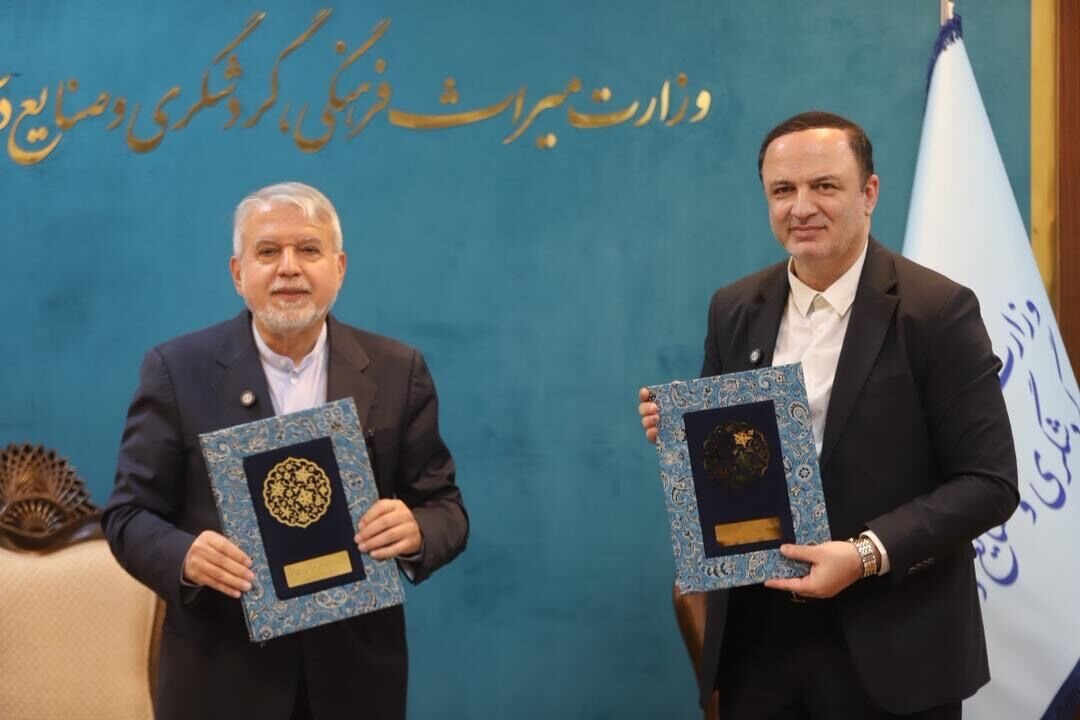Tax exemptions to encourage tourism investment in Iran's Free Zones

TEHRAN-- A Memorandum of Understanding (MoU) was signed between the Secretariat of the Supreme Council of Free and Special Economic Zones and the Ministry of Cultural Heritage, Tourism and Handicrafts with the aim of developing the tourism industry, protecting cultural heritage, and strengthening handicrafts in free zones, based on which investors will be granted tax exemptions.
According to IRNA, during a ceremony for signing this MoU, which was held in the presence of the Secretary of the High Council of Free Zones Reza Masrour, Tourism Minister Seyyed Reza Salehi-Amiri said that free zones can turn into the one of the major tourism hubs of Iran and even the world.
The realization of this goal requires the formation of coordination, convergence, and joint cooperation, he added.
He said the three main axes of cooperation between the two bodies are as follows: first, utilizing national and international capacities and membership of free zones in official tourism organizations, second, introducing Iran's attractions on a global level through the production of multilingual content and its publication in international media, airlines, and high-profile networks, and third, developing tourism investment packages with special incentives such as tax exemptions, the possibility of importing equipment and vehicles required by hotels, and the creation of coastal and marine facilities.
The minister continued that based on the reports, Kish Free Zone currently has 50 active hotels. It has also 50 hotel projects which are under construction, he added.
The capacity can turn Kish Island into the third tourism destination of Iran after Tehran and Mashhad, he said, adding that designing travel chains and combined tours between cities and free zones can play a key role in introducing Iran to foreign tourists.
He also announced plans to hold an international conference on investment in free zones and emphasized that this event will be a good opportunity to present investment packages to domestic and foreign investors.
Meanwhile, Reza Masrour said that although free zones were initially formed with a commercial and industrial approach, today tourism has become the main priority in many of them and Iran has valuable capacities in this field.
Pointing to the new policies in investment sector and removing restrictions in free zones, he said: “In the past, some of the attractions of investing in free zones had faded, but currently, with the development of the free zones development document and the amendment of the law, we are restoring these advantages. These measures include removing restrictions on car imports, resolving problems related to converting regional car license plates to national ones, and increasing the quota for goods accompanying passengers.The current figure for this quota is $420 million, which should be increased in line with the demand of the people and tourists.”
Masrour listed the development of investment incentives as another priority, saying that the new incentives have been notified to all free zones in form of instructions, but more facilities should be provided in some areas, such as issuing construction permits. This issue will be pursued especially in tourist areas such as Kish, he added.
He also emphasized the necessity of promoting marine tourism in free zones, adding: “In the north of the country, there is potential for creating marinas in Caspian ports, which could lead to the launch of recreational shipping lines. In the south, there is the possibility of creating direct sea lines between Kish and the United Arab Emirates or Chabahar and Muscat, for which we will even allocate initial subsidies to the investors.”
Masrour reiterated the importance of holding international exhibitions and events, adding that Kish International Exhibition has a good capacity to introduce tourism opportunities in free zones, and this platform should be used to attract investors.
He emphasized that free zones have extensive capacities for cooperation with the Ministry of Cultural Heritage. “From health tourism in Arvand to the development of marine tourism in the north and south, all these capacities can become a strong point for the country through the synergy of the two bodies. We hope that the implementation of this memorandum will provide the basis for realizing these goals.”
It is worth noting that this MoU was drafted in nine clauses and was signed by Masrour and Salehi-Amiri.
KD
Leave a Comment